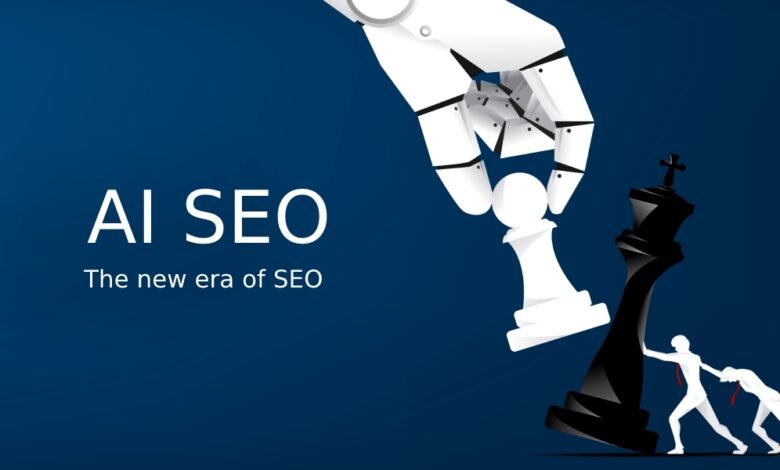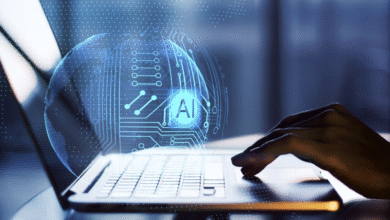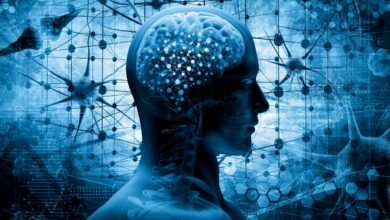AI and SEO: What Does the Future Look Like?

The rise of artificial intelligence (AI) has revolutionized many industries, and the world of SEO is no exception. AI technology is transforming the way we approach SEO, and its impact on the industry is only set to grow in the future.
In this article, we will explore the intersection of AI and SEO and discuss the future of this exciting field.
The Evolution of SEO
The evolution of SEO (Search Engine Optimization) has been a fascinating journey, driven by the ever-changing algorithms of search engines and technology development. In the early days of SEO, keyword stuffing and link building were the primary tactics to increase website rankings. However, as search engines became smarter, these practices became less effective, and new SEO strategies emerged.
With the rise of Google as the dominant search engine, the importance of high-quality content and user experience became more apparent. As a result, SEO shifted towards creating valuable and engaging content for users rather than simply manipulating search engine algorithms. Mobile devices also became a crucial consideration as more and more users began searching for information on their phones and tablets.
SEO is a complex and dynamic field that requires a holistic approach. Website optimization, content creation, and technical SEO are all vital components of a successful SEO strategy. With the continued growth of AI technology, the future of SEO will likely be even more exciting and challenging, requiring businesses to stay up-to-date with the latest trends and adapt their strategies accordingly.
The Role of AI in SEO
The role of AI (Artificial Intelligence) in SEO (Search Engine Optimization) is rapidly evolving, and its impact on the field is significant. AI technology is now being used to enhance and optimize SEO strategies, revolutionizing how businesses approach their SEO efforts.
One primary way AI is used in SEO is through data analysis. With the help of machine learning algorithms, AI tools can analyze vast amounts of data, such as search engine rankings, website traffic, and user behaviour, to identify patterns and insights that can inform SEO strategies. This data analysis can help businesses better understand user intent and behaviour, which is crucial in creating effective and targeted content.
Another way AI is impacting SEO is through personalized content creation. By analyzing user data, AI tools can generate customized content tailored to user preferences and interests. This customized content can help increase user engagement and improve the overall user experience, a critical factor in SEO rankings.
AI is also being used to optimize website performance and technical SEO. AI-powered tools can quickly identify and fix technical issues impacting website performance, such as broken links, duplicate content, and slow loading times. Businesses can improve their website rankings and overall user experience by optimizing these technical factors.
Overall, AI’s role in SEO will only become more critical as technology continues to evolve. By leveraging the power of AI, businesses can gain valuable insights, create personalized content, and optimize their websites for better user experiences. This can help them stay ahead of the competition and succeed in the ever-evolving world of SEO.
The Benefits of AI for SEO
The benefits of AI (Artificial Intelligence) for SEO (Search Engine Optimization) are numerous. Businesses that leverage AI in their SEO strategies can gain a competitive edge in the digital landscape. Here are some of the key benefits of AI for SEO:
- Improved data analysis: AI-powered tools can analyze vast amounts of data quickly and accurately, providing valuable insights into user behaviour, search engine rankings, and website traffic. This data analysis can help businesses make informed decisions about their SEO strategies and create more targeted and compelling content.
- Personalized content creation: AI tools can create customized content tailored to specific user preferences and interests by analyzing user data. This customized content can improve user engagement and increase the likelihood of conversions.
- Improved user experience: AI can be used to optimize website performance and improve the overall user experience. AI-powered tools can identify and fix technical issues impacting website performance, such as slow loading times, broken links, and duplicate content. By improving the user experience, businesses can increase user engagement and improve their website rankings.
- Enhanced keyword research: AI-powered tools can help businesses identify new keywords and phrases they may not have considered otherwise. By using machine learning algorithms, AI tools can identify patterns in search data and provide businesses with insights into which keywords and phrases are most likely to drive traffic and conversions.
- Increased efficiency: AI-powered tools can automate many SEO tasks, such as keyword research, content creation, and technical optimization. This can save businesses time and resources, allowing them to focus on other aspects of their digital marketing strategies.
Overall, the benefits of AI for SEO are significant, and businesses that incorporate AI into their SEO strategies can gain a competitive edge in the digital landscape. By leveraging the power of AI, companies can improve data analysis, create personalized content, improve the user experience, enhance keyword research, and increase efficiency.
The Challenges of AI for SEO
While the benefits of AI (Artificial Intelligence) for SEO (Search Engine Optimization) are significant, there are also some challenges that businesses may face when incorporating AI into their SEO strategies. Here are some of the critical challenges of AI for SEO:
- Limited understanding: Despite advancements in AI technology, there is still little understanding of how search engine algorithms work. This can make it difficult for businesses to optimize their websites effectively for search engines.
- Lack of human touch: AI-powered tools can automate many SEO tasks, such as content creation and optimization. However, these tools may lack the necessary human touch to create content that resonates with users.
- Privacy concerns: AI tools use user data to create personalized content and optimize websites. However, there are concerns about data privacy and how this data is being used.
- Complexity: AI-powered tools can be complex and require specialized knowledge to use effectively. Businesses may need to invest in training or hire specialists to utilize these tools effectively.
- Cost: AI-powered tools can be expensive, and not all businesses may have the budget to invest in these technologies.
Overall, the challenges of AI for SEO highlight the importance of balancing technology with human expertise. While AI-powered tools can provide valuable insights and automation, it’s essential to remember that human touch and creativity are still necessary for effective SEO. Businesses can create effective SEO strategies that drive results by addressing these challenges and utilizing AI in combination with human expertise.
The Future of AI and SEO
The future of AI (Artificial Intelligence) and SEO (Search Engine Optimization) is exciting, with new advancements in technology paving the way for more effective and efficient SEO strategies. Here are some of the key trends and predictions for the future of AI and SEO:
- Voice search optimization: With the rise of voice assistants like Siri and Alexa, businesses are optimizing their websites for voice search. AI-powered tools can help companies identify the keywords and phrases users search for through voice search and optimize their content accordingly.
- Hyper-personalization: AI-powered tools can create personalized content based on user data, and this trend is expected to continue. As AI technology advances, businesses can make more targeted and customized content, improving user engagement and driving conversions.
- Predictive analytics: AI can help businesses predict user behaviour and identify trends in user data. This predictive analytics can help companies to create more effective SEO strategies and improve user engagement.
- Visual search optimization: With the rise of optical search technology, businesses are beginning to optimize their websites for visual search. AI-powered tools can analyze images and identify their associated keywords, improving website rankings and driving more traffic.
- Machine learning: As machine learning technology advances, AI-powered tools will become even more effective at analyzing data and improving SEO strategies. This technology can help businesses identify patterns in user data and make informed decisions about their SEO strategies.
Overall, the future of AI and SEO is exciting, with new advancements in technology providing businesses with more effective and efficient SEO strategies. Companies leveraging AI in their SEO strategies can gain a competitive edge in the digital landscape and drive more traffic and conversions to their websites.
Conclusion
In conclusion, the future of SEO is undoubtedly tied to the advancement of AI technology. With the help of AI, SEO experts and marketers can gain deeper insights into user intent and behaviour, create personalized and high-quality content, and optimize websites for better user experiences. However, as with any new technology, there are challenges to address, such as potential bias and ethical concerns. It’s crucial that businesses approach AI and SEO with a mindful and honest approach, leveraging the benefits while being aware of the limitations. By doing so, they can stay ahead of the curve and thrive in a future where AI and SEO are more intertwined than ever before.
Read More: Top UX/UI Trends You Should Know In 2023








9 Comments